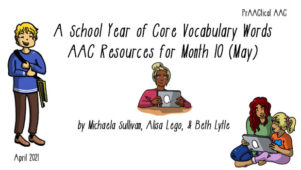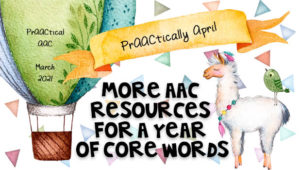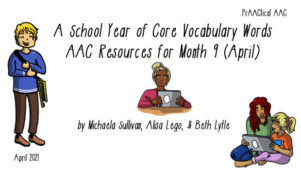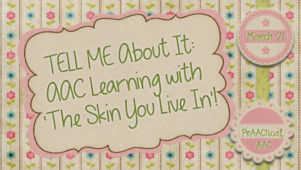5 PrAACtical Thoughts on Catch-Up Conversations
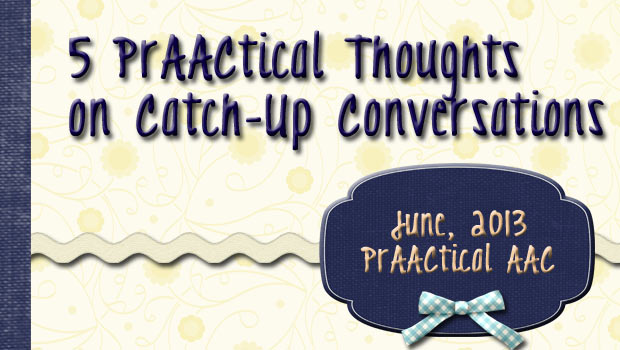
One of the things SLPs frequently do at the start of their therapy sessions is have some casual conversations with their clients to catch up on what happened since their last visit. Whether it is an elementary school student with ASD, a teenager with cerebral palsy, or an older adult with aphasia, we engage in polite conversation to find out what they’ve been up to and perhaps share a bit about our own experiences.
Here are some thoughts on making those ‘catch-up conversations’ work from a prAACtical perspective.
1. Possible goal areas: initiate conversation; maintain dialogue on an established topic; redirect conversation to a new topic; respond to non-obligatory communication opportunities; use temporal terms in multi-word utterances; convey a personal narrative with a clear beginning, middle, and end; use regular past tense verbs; ask partner-focused questions
2. Core language targets: it, we, they, do/did, have/had, was/were, not
- It was (not); We were (not), They were (not)
- We did (not); They did (not)
3. Fringe or extended language targets: names of peers, places within the school/community, days of the week, new vocabulary that we’ve been learning
4. Intervention strategies:
- Aided language input focusing on the target language goals (e.g., use their SGD to model regular past tense when talking to the client; use the client’s communication book to model time-related terms, such as first, then, and next)
- Make the expectations explicit (e.g., “I want to find out about your weekend. As we talk, I want you to do your best to use your time words, like __ and__. Remember to tell me about it with a clear beginning, middle, and end” [show visual support])
- Provide informative feedback to focus attention on areas that need improvement (e.g., “So I know that you went somewhere with Mariah, but then I got confused because I don’t know WHERE you went;” “Fix it up so that I know what happened first”).
5. Prompting: Least-to-most prompting, extended pauses, suggested topic (e.g., “You can tell me about someplace you went or something you watched”), mand to communicate (e.g., “Tell me about it”), forced choice options (e.g., “Tell me about your weekend or ask me about mine.”)
Do you have ways to make catch-up conversations extend the effectiveness of your therapy? We’d love to hear about them.
Filed under: PrAACtical Thinking
Tagged With: core vocabulary, fringe vocabulary, language goals, pragmatics, prompting, session planning
This post was written by Carole Zangari

